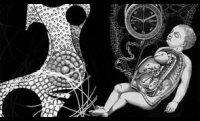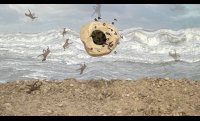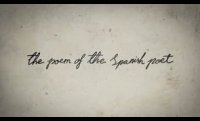More Words From Winners: Danielle Cadena Deulen
To accompany our May/June 2012 issue's feature "Winners on Winning," part of our special section on writing contests, we'll be posting a selection of mini-interviews with prize recipients on the benefits of their awards and what they learned from winning.
First up, we speak with poet and creative nonfiction writer Danielle Cadena Deulen, whose essay collection, The Riots, was published in 2011 by University of Georgia Press as part of the AWP Award Series in Creative Nonfiction. The book went on to win another award, the Great Lakes Colleges Association New Writers Award, which offers winners a paid reading tour of several colleges. Her debut on the literary scene, the poetry collection Lovely Asunder, which she'd shopped for five years, was also released in 2011 as part of a prize—the Miller Williams Arkansas Poetry Prize from University of Arkansas Press. Deulen discusses how her two awards in different genres gave her an edge in the job market and offers strategies for polishing a contest manuscript.
How did winning your latest honor, the AWP Award Series in Creative Nonfiction, change your career?
I believe The Riots was pivotal in helping me to gain my position as an assistant professor in the doctoral creative writing program at the University of Cincinnati. Obviously, publications enable one to establish themselves in tenure track positions in academia—there’s nothing unusual about that. However, I applied and was hired as a poet. My first book, Lovely Asunder, was published in the same year just a few months earlier, and landed me an interview for the position. During the interview process, The Riots was published, and as it turns out, the faculty member that had taught creative nonfiction in the program at UC had recently left for a position elsewhere, so they needed someone who might be able to teach creative nonfiction as well. This meant I had something extra to offer the department—important in such a tough job market! A more subtle benefit of winning the prize is that my work seems to have caught the attention of a few agents and editors at literary magazines I admire who’ve queried me for new essays.
Did the award have an effect on any decisions you made as a writer, on the path you chose to take in life or in your work?
Both prizes are recent, so it is still unforeseen how they might affect my future writing. However, in the responses I’ve received about The Riots, specifically, I have come to realize that there is a desire for innovative creative nonfiction. When I wrote The Riots I wasn’t thinking much about the audience for such a book and structured it in a way I found interesting—that is, I was working in forms that, at times, thwarted traditional ideas of prose, though were very familiar to me as a poet. As it turns out, other people found this interesting as well. As I move forward into new projects, in poetry as well as creative nonfiction, I will be thinking more actively about innovation: how structure might augment or illuminate my subjects.
What advice do you have for writers looking to contests as a way to get their work into the world?
This only applies to a manuscript that can be arranged in a variety of ways (poetry, essay, short fiction), but when submitting to contests, I believe it’s important to arrange your manuscript for a contest, not necessarily for the most artful arrangement. You have to keep two people in mind when arranging a manuscript for a contest: the contest judge and the contest screener. Be sure to research who the judge is for the contest you’re sending and read some of her work to determine if she might be aligned with what you’re attempting in your manuscript. If you decide that the judge might be a good reader for your work, go on to worry about the screener. The screener, who is likely a writer herself, will probably be reading your manuscript on a day that otherwise would have been a vacation from work and has a huge box of manuscripts beside her which she must get through relatively quickly in order to send something to the judge. This means your poor screener probably doesn’t have the time or energy to pour over your work; you must impress her immediately with something stylish and interesting. For this reason, you should place your best piece first, offer her variety (in tone, form, or subject matter) throughout the manuscript to keep her reading, and be sure to end the manuscript with a strong piece as well. Then, cross your fingers, hold your breath, and keep in mind that dumb luck also plays a large part in this process. Be patient with yourself.
In the video below, Deulen discusses the variations in her approach to writing poems and prose.










